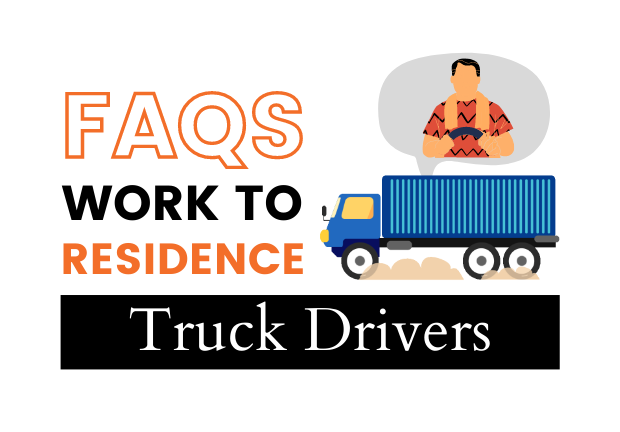Transport Sector Agreement and a Pathway to Residence for Migrant Workers in the Bus, Trucking, and Maritime Industries
07 April 2024Originally published on: 09/06/2023
Updated on: 07/04/2024
Note: The pathways for Truck Drivers and Bus Drivers were discontinued on 7 April 2024. Those who were already on this pathway before this date will still be eligible for residence. The pathway for Maritime roles are still in effect.
Last month, the government finalised details of the Transport Sector Agreement that was initially announced in December 2022.
This agreement has been introduced to support important national infrastructure areas like public transport, waste collection, and supply chains. This will allow these industries the time to work towards better wages and increased training of New Zealanders. If you would like to read more about sector agreements in general and what this means for businesses in these industries and their migrant workforce, please read that here.
The key highlights from the Transport Sector Agreement are:
- A two-year work-to-residence pathway for Truck Drivers, Bus Drivers, Ship’s Masters and Deck Hands.
- Migrants working in these occupations will be able to apply for residence from 29 September 2023, if they meet the requirements.
- There is no cap in this sector agreement, i.e., no quota for residence spaces.
- Another review of this agreement will be done by Immigration New Zealand (INZ) in 2024.
- Migrants who are already on their two-year work-to-residence pathway will not be affected by any changes made to the agreement as part of that review.
While the Sector Agreement introduced a two-year work-to-residence pathway for the aforementioned roles in the transport sector, the requirements for each of them vary.
Here are the crucial things you need to know for each of these industries:
Truck Drivers
Which trucking roles are eligible for this pathway?
The eligible roles are Truck Driver, Aircraft Refueller, Furniture Removalist, Tow Truck Driver, and Tanker Driver.
Can any truck driver apply for this pathway?
No, only those truck drivers who have been driving trucks that require a class four or five licence are eligible.
Is there a minimum wage requirement?
Yes, they will need to be paid at least the median wage of $29.66 per hour for 24 months.
Does overseas experience count towards the 24-month experience requirement?
No, only New Zealand-gained experience counts.
Does this New Zealand experience need to be gained on an Accredited Employer Work Visa (AEWV)?
- Applicants must gain work experience on an AEWV or on an interim visa granted as a result of applying for an AEWV,
or
- Before 4 July 2022, on any work visa or Critical Purpose visa with work conditions.
Bus Drivers
Are all bus drivers eligible for this pathway?
No, to be eligible for this pathway, the role should either:
- Be for an employer who has signed the ‘All Parties Memorandum of Understanding on Improving Bus Driver Pay and Conditions’ for the region they are working in,
or
- Be a school bus driver on a Ministry of Education-funded school bus service,
or
- Be a school bus driver on a service directly contracted with a school.
What is the licence requirement for them?
They must hold a ‘P’ (passenger) endorsement on a class two New Zealand drivers’ licence.
What is the wage requirement for bus drivers?
Bus drivers hired under this agreement should be paid at least $28 per hour for 24 months.
Will bus drivers need to be hired on an Accredited Employer Work Visa?
Yes, bus drivers filling these roles will be hired on Accredited Employer Work Visas.
What is the duration of the Accredited Employer Work Visa that eligible bus drivers will receive?
They will receive an Accredited Employer Work Visa that will be valid for three years. This will give them adequate time to complete the 24 months of work experience needed to apply for residence.
Maritime Roles
Which maritime roles are eligible for this pathway?
The eligible roles are Ship’s Master and Deck Hand.
What is the eligibility criterion for Ship’s Master?
They must hold either:
- Skipper Restricted Limits Certificate of Competency (CoC) with 500GT or 3000GT endorsement,
or
- Standards of Training, Certification and Watchkeeping for Seafarers (STCW) Certificate of Competency (CoC) that entitles the holder to perform the duties of a Ship’s Master on a vessel that is 500 gross tonnes or more (as recognised by Maritime New Zealand).
What is the eligibility criterion for Deck Hand?
They must hold either:
- Qualified Deck Crew Certificate of Proficiency (CoP),
or
- Deck Watch Rating (DWR) Certificate of Proficiency (CoP) that entitles the holder to perform the duties of Deck Hand (as recognised by Maritime New Zealand).
Is there a minimum wage requirement?
Yes, they will need to be paid at least the median wage of $29.66 per hour for 24 months.
In addition to the vital information specified above, here are some notable factors that apply to all three industries:
- The required qualifications/licences do not necessarily have to be held for 24 months, but applicants should hold them at the time they apply for residence.
- The 24 months of required work experience must be gained during the 30-month period preceding the date the residence application is made.
- The required work experience does not have to be consecutive. For example, two 12-month periods with a gap of six months in between are acceptable.
- The required work experience can be comprised of different types of work within the Transport Sector occupations, as long as the requirements of each occupation are met. For example, an applicant could have worked for 16 months as a Deck Hand and 8 months as a Truck Driver.
- Work experience gained while on an Interim Visa (while the applicant held an AEWV and had applied for a further AEWV) will also count towards the 24 months of experience.
- The applicant’s employment should be permanent or for a fixed term of at least 12 months from when the application is made.
- The employment should be full-time, i.e., for 30 guaranteed hours per week for every week worked.
- Apart from an AEWV, work on other work visas applied for on or after 4 July 2022 cannot be counted towards the 24-month work requirement.
- Parental leave availed by an applicant can be counted towards the 24-month work requirement.
The Government also has Sector Agreements that cover a host of other industries. You can take a look at our comprehensive list of various roles here.
We run webinars for employers, HR professionals, and recruiters throughout the year where we simplify immigration policies, key updates, and provide handy tips to help you better navigate the complex world of immigration. Sign up with us below for an individual webinar or the series and stay up-to-date with immigration policies that are important for your people and your business.


.png)



.png)
